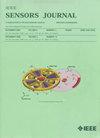应用基于进化、蜂群和迭代的任务卸载优化技术延长无线传感器网络的电池寿命
IF 4.3
2区 综合性期刊
Q1 ENGINEERING, ELECTRICAL & ELECTRONIC
引用次数: 0
摘要
随着物联网(IoT)设备的激增,数据生成量呈指数级增长,这给处于极端边缘、资源有限的传感器节点带来了巨大的计算需求。任务卸载为应对这些挑战提供了一种前景广阔的解决方案,可在无线传感器网络(WSN)中实现能源感知和资源高效计算。尽管任务卸载具有公认的优势,但目前的研究对极端边缘环境中任务卸载的探索仍然有限。本研究旨在通过研究计算卸载在 WSN 中的应用来降低能耗,从而弥补现有的研究空白。我们的主要贡献在于引入了专为 WSN 设计的优化算法。我们的建议以带宽分配为重点,采用了适应 WSN 特性的元搜索和迭代算法,提高了能效和网络寿命。通过广泛的实验分析,我们的研究结果凸显了在极端边缘物联网环境中,任务卸载对提高能源效率和整体系统性能的重大影响。值得注意的是,与没有任务卸载的网络相比,我们展示了采用任务卸载后网络消耗最多可减少 135% 的显著效果。此外,我们独特的多目标方法利用粒子群算法,使自己有别于其他提议的算法。这种实现方法有效地平衡了单个节点的消耗,延长了网络寿命,同时成功实现了两个指定目标。本文章由计算机程序翻译,如有差异,请以英文原文为准。
The Application of Evolutionary, Swarm, and Iterative-Based Task-Offloading Optimization for Battery Life Extension in Wireless Sensor Networks
The proliferation of Internet-of-Things (IoT) devices has exponentially increased data generation, placing substantial computational demands on resource-constrained sensor nodes at the extreme edge. Task offloading presents a promising solution to tackle these challenges, enabling energy-aware and resource-efficient computing in wireless sensor networks (WSNs). Despite its recognized benefits, the exploration of task offloading in extreme edge environments remains limited in current research. This study aims to bridge the existing research gap by investigating the application of computational offloading in WSNs to reduce energy consumption. Our key contribution lies in the introduction of optimization algorithms explicitly designed for WSNs. Our proposal, focusing on bandwidth allocation, employs metaheuristic and iterative algorithms adapted to WSN characteristics, enhancing energy efficiency and network lifespan. Through extensive experimental analysis, our findings highlight the significant impact of task offloading on improving energy efficiency and overall system performance in extreme-edge IoT environments. Notably, we demonstrate a remarkable up to 135% reduction in network consumption when employing task offloading, compared to a network without offloading. Furthermore, our distinctive multiobjective approach, utilizing particle swarm algorithms, distinguishes itself from other proposed algorithms. This implementation effectively balances individual node consumption, resulting in an extended network lifetime while successfully achieving both specified objectives.
求助全文
通过发布文献求助,成功后即可免费获取论文全文。
去求助
来源期刊

IEEE Sensors Journal
工程技术-工程:电子与电气
CiteScore
7.70
自引率
14.00%
发文量
2058
审稿时长
5.2 months
期刊介绍:
The fields of interest of the IEEE Sensors Journal are the theory, design , fabrication, manufacturing and applications of devices for sensing and transducing physical, chemical and biological phenomena, with emphasis on the electronics and physics aspect of sensors and integrated sensors-actuators. IEEE Sensors Journal deals with the following:
-Sensor Phenomenology, Modelling, and Evaluation
-Sensor Materials, Processing, and Fabrication
-Chemical and Gas Sensors
-Microfluidics and Biosensors
-Optical Sensors
-Physical Sensors: Temperature, Mechanical, Magnetic, and others
-Acoustic and Ultrasonic Sensors
-Sensor Packaging
-Sensor Networks
-Sensor Applications
-Sensor Systems: Signals, Processing, and Interfaces
-Actuators and Sensor Power Systems
-Sensor Signal Processing for high precision and stability (amplification, filtering, linearization, modulation/demodulation) and under harsh conditions (EMC, radiation, humidity, temperature); energy consumption/harvesting
-Sensor Data Processing (soft computing with sensor data, e.g., pattern recognition, machine learning, evolutionary computation; sensor data fusion, processing of wave e.g., electromagnetic and acoustic; and non-wave, e.g., chemical, gravity, particle, thermal, radiative and non-radiative sensor data, detection, estimation and classification based on sensor data)
-Sensors in Industrial Practice
 求助内容:
求助内容: 应助结果提醒方式:
应助结果提醒方式:


